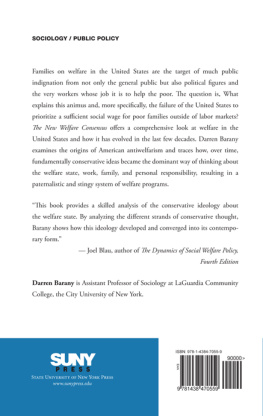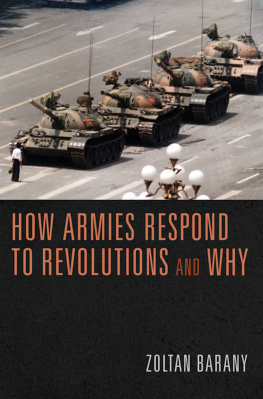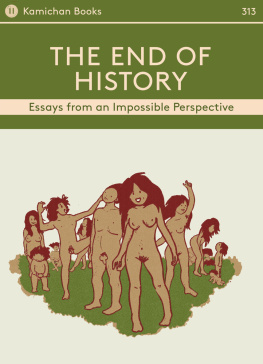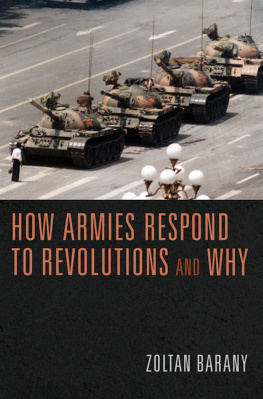Darren Barany - The New Welfare Consensus
Here you can read online Darren Barany - The New Welfare Consensus full text of the book (entire story) in english for free. Download pdf and epub, get meaning, cover and reviews about this ebook. year: 2018, publisher: State University of New York Press, genre: Politics. Description of the work, (preface) as well as reviews are available. Best literature library LitArk.com created for fans of good reading and offers a wide selection of genres:
Romance novel
Science fiction
Adventure
Detective
Science
History
Home and family
Prose
Art
Politics
Computer
Non-fiction
Religion
Business
Children
Humor
Choose a favorite category and find really read worthwhile books. Enjoy immersion in the world of imagination, feel the emotions of the characters or learn something new for yourself, make an fascinating discovery.
- Book:The New Welfare Consensus
- Author:
- Publisher:State University of New York Press
- Genre:
- Year:2018
- Rating:5 / 5
- Favourites:Add to favourites
- Your mark:
- 100
- 1
- 2
- 3
- 4
- 5
The New Welfare Consensus: summary, description and annotation
We offer to read an annotation, description, summary or preface (depends on what the author of the book "The New Welfare Consensus" wrote himself). If you haven't found the necessary information about the book — write in the comments, we will try to find it.
The New Welfare Consensus — read online for free the complete book (whole text) full work
Below is the text of the book, divided by pages. System saving the place of the last page read, allows you to conveniently read the book "The New Welfare Consensus" online for free, without having to search again every time where you left off. Put a bookmark, and you can go to the page where you finished reading at any time.
Font size:
Interval:
Bookmark:


CONSENSUS
Ideological, Political, and Social Origins
DARREN BARANY

Cover: Photo of National Welfare Rights Organization March in NY to End Hunger (Series 8, Poor Peoples Campaign, MayJune 1968), from the Jack Rottier Photograph Collection, 19531983, courtesy of George Mason University Special Collections Research Center, University Libraries. Photo of Clinton and Reagan, courtesy of Ronald Reagan Library, C49841-11A 10/13/88.
Published by State University of New York Press, Albany
2018 State University of New York
All rights reserved
Printed in the United States of America
No part of this book may be used or reproduced in any manner whatsoever without written permission. No part of this book may be stored in a retrieval system or transmitted in any form or by any means including electronic, electrostatic, magnetic tape, mechanical, photocopying, recording, or otherwise without the prior permission in writing of the publisher.
For information, contact State University of New York Press, Albany, NY
www.sunypress.edu
Library of Congress Cataloging-in-Publication Data
Names: Barany, Darren, author.
Title: The new welfare consensus : ideological, political, and social origins / Darren Barany.
Description: Albany : State University of New York Press, 2018. | Includes bibliographical references and index.
Identifiers: LCCN 2017040344| ISBN 9781438470559 (hardcover : alk. paper) | ISBN 9781438470566 (e-book)
Subjects: LCSH: Public welfareUnited StatesHistory20th century. | Welfare stateUnited StatesHistory20th century. | Welfare recipientsEmploymentUnited StatesHistory20th century. | United StatesPolitics and government1945-1989. | United StatesPolitics and government1989
Classification: LCC HV95 .B28 2018 | DDC 361.973dc23 LC record available at https://lccn.loc.gov/2017040344
Further information is available at the Library of Congress.
10 9 8 7 6 5 4 3 2 1
Dedicated to the memory of my parents,
MARY AND ERNIE
Policy, of course, is the Machiavellian term for deceit,
so immediate and overt honesty can be camouflage
for ultimate exploitation
Marshall McLuhan
CONTENTS
ILLUSTRATIONS
PREFACE
MEMES THAT CELEBRATE NEWS OF STATES SUBJECTING NONWORKING POOR parents to drug tests so that they and their children may continue to qualify for poor relief or grumble about food stamp recipients buying premium products with their benefits at the grocery store are familiar on social media. These sentiments come up casually in conversations about wasteful welfare programs and welfare cheats. A genuine and pervasive lack of empathy for poor families and the practice of blaming them for the conditions of poverty in which they live, especially poor families of color, is evident and encoded in contemporary policy discourse. In the existing ideological climate, stark conditions of inequality are explained away by conjuring narratives about personal failings and accountability, cultural pathology, and family disorganization. This book reexplores the history, social conditions, and relevant texts to tell a story about how aspects of this milieu came to be. It addresses poverty, inequality, and policy through an interpretive analysis of welfare state discourse in particular. It is a story about political ideas that, in certain conditions (economic, social, ideological, and political), became orthodoxy in relation to policy reform and policy analysis. It is an important story because it clarifies why we think about work, family, poverty, personal responsibility, the welfare poor, and antipoverty measures the way we do.
The investigation mainly covers the interval from the interwar period to the signing of the Personal Responsibility and Work Opportunity Reconciliation Act (PRWORA) in 1996. While this era saw the sequence of legislative developments leading up to the bill, more importantly, it is one in which an emerging social policy narrative was essentialized in the public consciousness and within formal policy circles. Pages have been dedicated to these matters before, but this text focuses historically on the contemporary welfare consensus in relation to its ideological and political foundation and how its persistence has affected the existing policy culture, one which constrains antipoverty policy discourse as well as legislative endeavors and outcomes. It considers the theoretical and historical origins of todays political debates around social policy, equality, and distributive justice, both between the right and left and also within each political formation, as they have endured particular intellectual struggles and histories. The literature on poverty, inequality, and policy is quite vast. However, critical texts that look at the tensions bound up in welfare state programs and the corresponding political discourse, as well as how politics, programs, and policy are mediated by prevailing ideologies, are far less prevalent.
This work entails a comprehensive history and analysis of the ideas and policy that now encompass mainstream thinking on welfare. The study represents a theoretical approach that draws on antecedent and key developments associated with the tradition of critical theory. One might regard it as a critical theory of the welfare state that engages the key tenets bound up in the contemporary welfare consensus in connection with the social, political, and economic systems that both generate and are generated by such ideology. Offered here is a contribution to the larger policy studies discussion, which clarifies the systemic necessity and content of ideological practice in order to shed light on the logic, meaning, and objectives of contemporary welfare state discourse in relation to the ethos and requirements of late capitalism. It details that process as it relates to the imperative and internal logic of late capitalisms survival and through unfolding the meaning and tensions bound up in the relevant texts and rationale of the corresponding political institutions and corresponding conditions that contributed to dispersing those ideas and gradually helped restructure the American political culture to one in which austerity- and poverty-induced misery have been largely normalized.
Not long before this books release, it was tempting to interpret developments like the passing and implementation of the Affordable Care Act (ACA) or the movement behind Bernie Sanderss 2016 presidential campaign as evidence that perhaps the moratorium on benefit expansion has receded. Rather, the culmination of these developments reveals that the existing policy consensus that steers outcomes toward system interests is very much intact. Even at the time of the ACAs development and passing, this consensus steered that legislative process toward a modest market-oriented strategy, which, while expanding coverage, ensured large profits for insurance companies and excluded a public option after a protracted and ugly ideological fight from right-wing advocacy groups. Regarding Sanderss campaign, due to the leaking of private Democratic National Committee (DNC) e-mails, it is now known that top officials in the DNC disparaged Sanders, despite presumptions of neutrality, and, as a clear gesture of partiality, worked to shield Hillary Clinton from criticism during the primary campaign (Shear and Rosenberg 2016; Sainato 2016). During the primary election cycle, Sanders openly criticized the 1996 Welfare Reform Bill, a significant part of President Bill Clintons legacy. At the time of the bills passage, Hillary Clinton supported the measure and helped garner public and legislative support for it in her role as First Lady. Despite Sanders polling more strongly against possible Republican challengers, including President Trump, it was apparent that DNC leadership was operating to move Clinton, the austerity candidate, forward as their nominee (Quinnipiac University 2016; Real Clear Politics 2016).
Font size:
Interval:
Bookmark:
Similar books «The New Welfare Consensus»
Look at similar books to The New Welfare Consensus. We have selected literature similar in name and meaning in the hope of providing readers with more options to find new, interesting, not yet read works.
Discussion, reviews of the book The New Welfare Consensus and just readers' own opinions. Leave your comments, write what you think about the work, its meaning or the main characters. Specify what exactly you liked and what you didn't like, and why you think so.




![Darren Shan - Cirque Du Freak [A Living Nightmare]](/uploads/posts/book/510746/thumbs/darren-shan-cirque-du-freak-a-living-nightmare.jpg)








